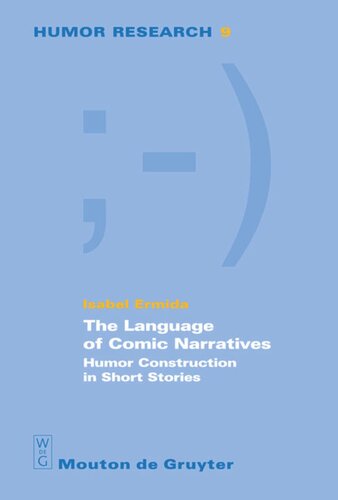

Most ebook files are in PDF format, so you can easily read them using various software such as Foxit Reader or directly on the Google Chrome browser.
Some ebook files are released by publishers in other formats such as .awz, .mobi, .epub, .fb2, etc. You may need to install specific software to read these formats on mobile/PC, such as Calibre.
Please read the tutorial at this link: https://ebookbell.com/faq
We offer FREE conversion to the popular formats you request; however, this may take some time. Therefore, right after payment, please email us, and we will try to provide the service as quickly as possible.
For some exceptional file formats or broken links (if any), please refrain from opening any disputes. Instead, email us first, and we will try to assist within a maximum of 6 hours.
EbookBell Team

0.0
0 reviewsThe book offers a comprehensive account of how humor works in short stories, by presenting a model of narrative comedy that is pragmatically as well as semantically, grammatically and stylistically informed. It is the first study to combine a sequential analysis of the comic short story with a hierarchical one, merging together horizontal and vertical narratological perspectives in a systematic way. The book covers the main areas of linguistic analysis and is deliberately interdisciplinary, using input from philosophy, sociology and psychology so as to touch upon the nature, motivations and functions of humor as a cognitive phenomenon in a social context. Crucially, The Language of Comic Narratives combines a scholarly approach with a careful explanation of key terms and concepts, making it accessible to researchers and students, as well as non-specialists. Moreover, it reviews a broad range of historical critical data by examining the source texts, and it provides many humorous examples, from jokes to extracts from comic narratives. Thus, it seeks to anchor theory in specific texts, and also to show that many linguistic mechanisms of humor are common to jokes and longer, literary comic narratives. The book tests the model of humorous narratives on a set of comic short stories by British and American writers, ranging from Evelyn Waugh and Dorothy Parker, through Graham Greene and Corey Ford, to David Lodge and Woody Allen. The validity of the model is confirmed through a subsequent discussion of apparent counter-examples.